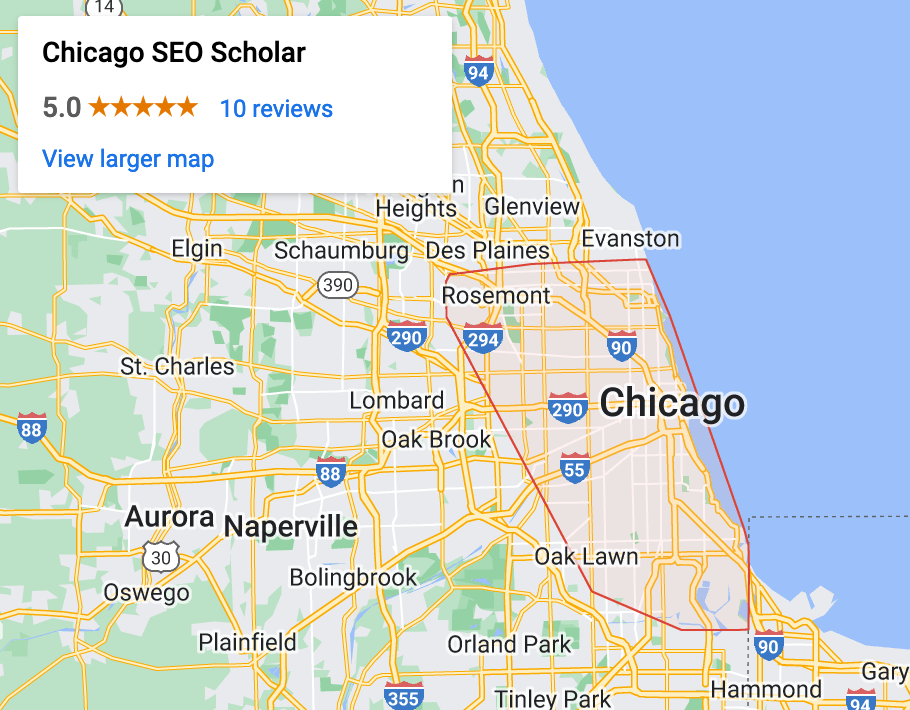What's the Importance of Backlinks in SEO for Law Firms?

Backlinks are an essential component of search engine optimization (SEO) for law firms. In this article, we will explore the significance of backlinks and their impact on your law firm's online visibility.
We will discuss what backlinks are, the different types of backlinks, and why they are crucial for SEO. We will provide insights on how backlinks can drive traffic to your law firm's website and offer practical tips on obtaining high-quality backlinks. We will highlight common mistakes to avoid when building backlinks and conclude with how they can benefit your law firm's SEO efforts.
Whether you're new to SEO or looking to enhance your law firm's online presence, this article will provide valuable information to help you understand and leverage backlinks effectively.
Understanding Backlinks and SEO for Law Firms
Understanding backlinks and their significance in the context of SEO for law firms is crucial to enhancing online visibility and organic search engine rankings. Backlinks, also known as inbound or incoming links, play a pivotal role in the off-page SEO strategy, offering valuable signals to search engines like Google regarding the credibility and authority of a law firm's website. Numerous studies, including research conducted by the University of Washington, have highlighted the direct correlation between high-quality backlinks and improved search engine rankings for law firms.
Backlinks act as endorsements from other websites, indicating that the content on a law firm's site is reliable and valuable. When reputable sites link to a law firm's website, it signals to search engines that the content is trustworthy and relevant. This not only boosts the website's authority but also enhances its visibility in search results.
Backlinks contribute to the overall user experience by offering visitors pathways to relevant information across the web. Law firms that prioritize acquiring backlinks from reputable sources can expect to see a significant improvement in their online presence and search engine performance.
What Are Backlinks?
Backlinks, in the realm of SEO for law firms, refer to external hyperlinks that direct users from one website to another, playing a pivotal role in enhancing a law firm's online authority and search engine visibility.
Backlinks are crucial for a law firm's website as they indicate its popularity and credibility to search engines. They also contribute to the website's PageRank, a metric used by Google to measure its importance. Therefore, obtaining backlinks from reputable sources like the Better Business Bureau (BBB) or established legal directories can greatly enhance a law firm's SEO performance and online reputation. These authoritative and relevant backlinks can also drive more referral traffic, ultimately helping the law firm to increase its online presence and attract more clients.
What Are the Different Types of Backlinks?
Backlinks for law firm websites come in various forms, encompassing directory listings, social media mentions, and niche-specific referrals from industry websites. These diverse types of backlinks contribute to the creation of a comprehensive and diversified link profile, enhancing a law firm's online presence and authority across different digital platforms.
Directory listings play a crucial role in establishing the credibility of a law firm. They provide valuable backlinks from reputable online directories such as Avvo, FindLaw, or Justia. Social media mentions and shares serve as powerful signals of trust and relevance to search engines, contributing to improved rankings.
Niche industry websites, specifically those related to legal practices or local community organizations, offer highly targeted backlinks. These can significantly boost a law firm's search visibility within specific markets.
Why Are Backlinks Important for Law Firm SEO?
Backlinks hold immense importance for law firm SEO, serving as a testament to a website's credibility, relevance, and authority within the digital landscape. Search engines like Google place significant value on high-quality backlinks, considering them as reliable endorsements from external sources, thereby influencing the search engine rankings and visibility of law firm websites in organic search results.
Quality backlinks not only contribute to the overall SEO strategy of a law firm's website but also enhance its online reputation and trustworthiness.
By establishing connections with reputable and relevant websites, law firms can position themselves as authoritative sources in their respective legal sectors, attracting more traffic and potential clients.
The link profile of a law firm's website can play a pivotal role in determining its credibility and demonstrating expertise in specialized practice areas, which in turn can positively impact its rankings in search engine results.
How Do Backlinks Affect Search Engine Rankings?
Backlinks wield a profound influence on the search engine rankings of law firm websites, influencing parameters such as PageRank and domain authority. Conducting thorough competitor research and acquiring high-quality backlinks from reputable sources contribute to elevating a law firm's website in the organic search results, fostering increased visibility and traffic.
Backlinks from authoritative and relevant domains signal to search engines that a law firm website is a reputable source of information within the legal niche. This leads to a higher PageRank for the site, acknowledging its credibility and trustworthiness. The accumulation of high-quality backlinks also enhances the website's domain authority, showcasing its influence and expertise in legal topics.
How Do Backlinks Drive Traffic to Your Law Firm Website?
Backlinks play a pivotal role in driving traffic to a law firm's website through various strategies such as leveraging platforms like Help a Reporter Out (HARO) for media exposure or reclaiming unlinked mentions from other digital sources. These backlink acquisition tactics contribute to generating targeted traffic and reinforcing a law firm's online presence within relevant industry circles.
By strategically earning backlinks from authoritative websites and industry-specific sources, law firms can enhance their online credibility and visibility.
When other reputable websites link back to a law firm's website, search engines recognize it as a sign of trustworthiness and relevance, thereby improving the website's ranking in search results. This leads to increased organic traffic, attracting potential clients who are actively seeking legal services or information.
The utilization of HARO presents an opportunity to secure mentions and backlinks in high-profile media outlets, thereby amplifying a law firm's digital footprint and reaching a wider audience.
Similarly, unlinked mention reclamation involves identifying brand mentions without corresponding links and pursuing opportunities to convert them into valuable backlinks, thus channeling additional traffic to the law firm's website.
How to Get Quality Backlinks for Your Law Firm Website?
Acquiring high-quality backlinks for a law firm website necessitates a strategic approach, involving the creation of valuable content, participation in industry events, and proactive link building endeavors. Crafting compelling and informative content, along with engaging with industry-specific events, provides opportunities to secure authoritative backlinks, bolstering the law firm's online authority and visibility.
Producing valuable content tailored to address the queries and concerns of the firm's target audience is essential. By offering insightful articles, blog posts, or whitepapers, the law firm can showcase expertise and attract attention from authoritative industry websites.
Strategic link building efforts, such as establishing partnerships with relevant organizations or pursuing guest blogging opportunities, can further diversify the site's backlink profile. Participating in notable industry events and conferences cultivates connections with influential individuals and organizations, potentially leading to collaborative content creation and backlink opportunities.
Create High-Quality Content
Creating high-quality content such as informative articles, engaging infographics, and insightful surveys serves as a potent strategy for attracting valuable backlinks to a law firm's website. Compelling content resonates with digital audiences and industry peers, increasing the likelihood of organic backlink acquisition and enhancing the website's overall search engine visibility.
Informative articles provide in-depth insights into legal topics, positioning the law firm as an authoritative source within its niche.
On the other hand, engaging infographics present complex legal information in a visually stimulating format, making it more shareable and link-worthy.
Insightful surveys enable the firm to gather original data, adding unique value to the content landscape and attracting attention from other reputable websites for backlink opportunities.
By consistently producing and promoting quality content in various formats, law firms can establish themselves as thought leaders in the legal industry, naturally attracting backlinks while bolstering their reputation and online presence.
Therefore, investing in diverse, high-quality content types proves critical in the pursuit of acquiring authoritative backlinks for law firm websites.
Guest Blogging and Outreach
Engaging in guest blogging and outreach initiatives presents law firms with opportunities to secure valuable backlinks from authoritative sources within the legal industry. Partnering with reputable platforms like Nolo and Justia for guest posting or contributor opportunities enhances a law firm's backlink profile, fostering increased online visibility and industry credibility.
These collaborations enable law firms to establish their expertise and thought leadership through high-quality content shared on reputable platforms. This attracts the attention of a wider audience interested in legal matters.
By strategically placing backlinks within informative and relevant articles, law firms can also drive organic traffic to their websites. This contributes to improved search engine rankings and brand recognition within the legal niche.
Utilize Social Media
Leveraging the power of social media platforms such as Facebook, Instagram, and Twitter serves as an effective avenue for acquiring backlinks to a law firm's website. Engaging with industry-specific communities, sharing valuable content, and fostering meaningful interactions on social media can lead to the acquisition of valuable backlinks from reputable sources within the legal and business spheres.
By establishing a strong presence on Facebook, law firms can connect with potential clients and share valuable content such as blog posts and articles. This can attract attention from other websites seeking authoritative references.
On Instagram, visually appealing and informative posts can spark interest and inspire social media users to link back to the law firm's website and reference the content.
Engaging in conversations and sharing updates about legal trends and news on Twitter can catch the attention of journalists, bloggers, and influencers, potentially leading to valuable backlinks from reputable sources.
Collaborate with Other Law Firms
Engaging in collaborative efforts with other law firms and legal entities, such as local chambers of commerce and industry associations, presents opportunities for acquiring valuable backlinks. Joint initiatives, sponsorships, and mutually beneficial engagements can lead to the acquisition of authoritative backlinks, amplifying the online visibility and industry stature of the involved law firms.
This collaborative approach not only enhances the link-building strategy of the involved legal entities but also fosters a network of trusted associations within the legal community.
By partnering with reputable organizations, law firms can showcase their expertise and credibility, gaining recognition within their niche. Such partnerships can facilitate knowledge exchange, industry insights, and referrals, contributing to the overall growth and reputation of the collaborating entities.
Utilize Legal Directories
Leveraging reputable legal directories like Yelp, YellowPages, and Whitepages enables law firms to secure authoritative backlinks from established platforms within the legal and business realms. Inclusion in niche directories and listings enhances a law firm's backlink profile, contributing to improved search engine visibility and industry recognition.
By being listed in these directories, law firms not only gain backlinks but also benefit from the authority and credibility associated with these renowned platforms.
When websites with high domain authority, such as Yelp and YellowPages, link back to a law firm's website, it not only contributes to SEO but also validates the firm's reputation.
These directories often attract potential clients seeking legal services, thus increasing the law firm's online visibility and potential client base.
What Are the Common Mistakes to Avoid When Building Backlinks for Law Firm SEO?
When engaging in backlink building for law firm SEO, it is imperative to avoid common pitfalls such as relying on broken backlinks, utilizing spammy tactics, and disregarding the diversification of anchor texts. Overlooking the potential value of nofollow links and failing to monitor backlink health can be detrimental, necessitating the use of tools like the disavow tool to rectify erroneous link profiles.
Broken backlinks can create a negative impression on search engines, affecting the website's authority and ranking. It is essential to regularly audit and remove or redirect broken backlinks to maintain a healthy link profile.
Likewise, using spammy tactics to acquire backlinks, such as buying links or participating in link schemes, can result in penalties from search engines, impacting the website's SEO efforts.
Failing to diversify anchor texts can lead to over-optimization and raise red flags with search engines. It's crucial to vary anchor texts with relevant keywords and natural language to appear more organic and avoid penalties.
Incorporating a mix of branded, generic, and long-tail anchors is advisable for a balanced backlink profile.
Buying Backlinks
The practice of buying backlinks, often in an attempt to manipulate search engine rankings, presents a significant risk for law firms, potentially leading to penalization from search engines. Such actions warrant proactive measures, including the use of the disavow tool, to rectify and disassociate from purchased backlinks, safeguarding a law firm's online reputation and search engine standing.
Buying backlinks can result in severe consequences, as search engines like Google actively combat this practice, imposing penalties and devaluing websites that engage in it.
For law firms, this could mean a significant loss of online visibility and potential clients. Purchased backlinks may originate from low-quality or spammy websites, tarnishing the firm's credibility.
As a result, employing the disavow tool becomes crucial to signal search engines to disregard these harmful backlinks, mitigating the potential damage and preserving the firm's reputable online presence.
Using Spammy Tactics
Engaging in spammy tactics to artificially inflate the backlink profile of a law firm website can lead to severe repercussions, including penalties from search engines like Google. Instances of link schemes, link farming, or manipulative practices undermine the credibility and trustworthiness of a law firm's online presence, necessitating a focus on organic and ethical backlink acquisition strategies.
The risks associated with resorting to such unethical methods are not worth the short-term gains they might offer. Search engines, especially Google, are vigilant in detecting and penalizing websites employing spammy tactics, and the consequences can be detrimental, negatively impacting a law firm's visibility and ranking in search results.
Therefore, it's crucial for law firms to prioritize high-quality, relevant, and authoritative backlinks through legitimate means, such as creating valuable content and fostering genuine relationships within the legal community.
Not Diversifying Anchor Texts
Failing to diversify anchor texts in backlink acquisition efforts for law firm websites can limit the organic visibility and search engine relevance of the associated content.
Through comprehensive competitor research and strategic anchor text diversity, law firms have the opportunity to optimize their backlink profiles, thus enhancing the contextual significance and authority of their online resources.
By understanding the anchor text distribution used by competing law firms, they can tailor their own backlink acquisition strategies to stand out and attract valuable organic traffic. This approach not only solidifies their position in search results but also positions them as industry authorities, crucial for building trust and credibility among relevant audiences.
Ignoring Nofollow Links
Disregarding the value of nofollow links in the backlink acquisition process for law firm SEO can lead to missed opportunities for diversification and link profile enhancement. Employing the disavow tool to manage and address nofollow links that may pose risks or detract from a law firm's online authority ensures a proactive and balanced approach to backlink management.
Nofollow links are often overlooked, but they play a crucial role in establishing a natural and credible backlink profile for law firm websites. By acknowledging the significance of nofollow links, law firms can embrace a well-rounded approach to SEO, mitigating the potential risks associated with an imbalanced link profile.
The disavow tool enables law firms to vet and address any problematic nofollow links, thereby safeguarding their online reputation and fostering a trustworthy digital presence.
Conclusion: How Backlinks Can Help Your Law Firm's SEO Efforts
The strategic acquisition and management of backlinks hold substantial potential for enhancing the SEO efforts and online visibility of law firms. Cultivating a diversified link profile, leveraging authoritative sources, and adhering to ethical acquisition practices contribute to the augmentation of a law firm's digital authority and industry recognition within the competitive digital landscape.
Backlinks play a crucial role in boosting a law firm's online presence. They demonstrate to search engines that the firm's website is a reliable and valuable source of information.
By obtaining diverse backlinks from high-quality and relevant websites, law firms can enhance their website's credibility and improve its ranking in search engine results. Ethical acquisition practices such as creating exceptional content or networking with reputable organizations can attract valuable backlinks, further elevating a law firm's digital authority.
Frequently Asked Questions
1. How do backlinks impact SEO for law firms?
Backlinks play a crucial role in determining the credibility and authority of a law firm's website, which ultimately affects its SEO ranking. The more quality backlinks a law firm has, the higher it will rank in search engine results.
2. What are backlinks and how do they work?
Backlinks, also known as inbound links, are links from other websites that lead to your law firm's website. Search engines view these links as a vote of confidence and trust in your website, which can improve its credibility and ranking.
3. How do backlinks contribute to a law firm's online presence?
Backlinks are a key factor in building a strong online presence for law firms. They not only drive traffic to your website, but also improve its visibility and trustworthiness, making it more likely for potential clients to find and choose your firm.
4. Can having too many backlinks hurt a law firm's SEO?
Yes, having too many low-quality or spammy backlinks can actually harm a law firm's SEO ranking. Search engines penalize websites with unnatural or irrelevant backlinks, so it's important to focus on obtaining high-quality, relevant backlinks to improve SEO.
5. How can law firms obtain quality backlinks?
Law firms can obtain quality backlinks by creating high-quality, informative content that other websites will want to link to. Additionally, networking and building relationships with other reputable websites in the legal industry can also help in obtaining backlinks.
6. Is it important for law firms to regularly monitor their backlinks?
Yes, it is important for law firms to regularly monitor their backlinks to ensure they are from reputable sources and relevant to their practice areas. It's also important to identify and disavow any spammy or harmful backlinks to maintain a healthy backlink profile.










The Chicago SEO Scholar is a trusted digital marketing consultancy that specializes in generating more traffic to Chicago businesses.
The founder, is committed to providing an excellent experience for his clients. He does this by providing excellent communication with clients, getting them a fantastic return on investment, and treating their business as if it was his own.


